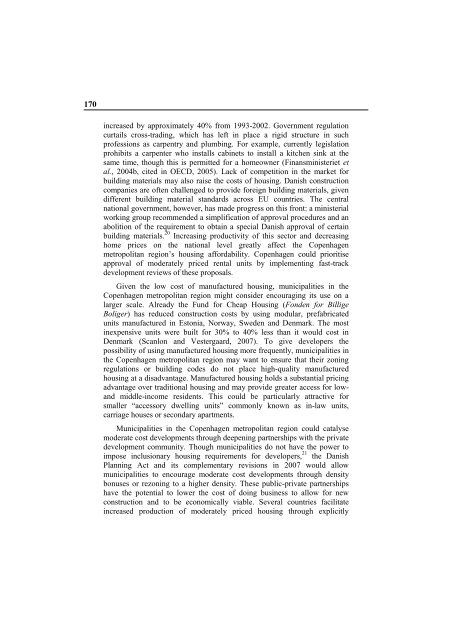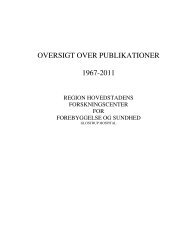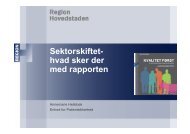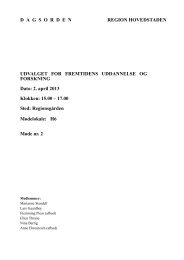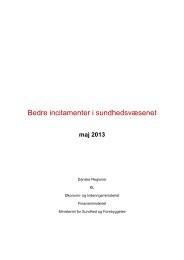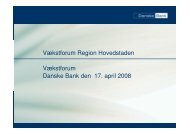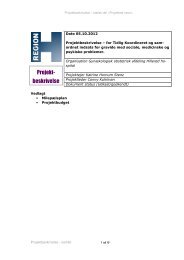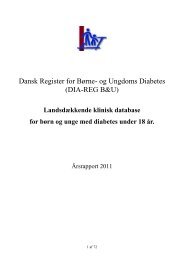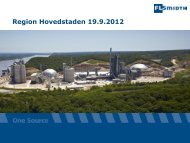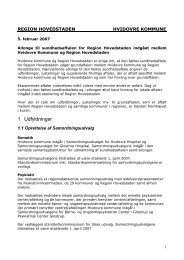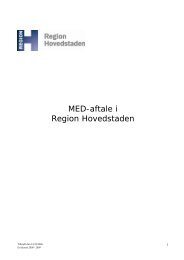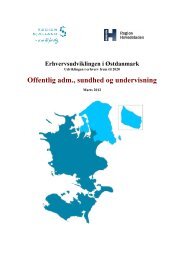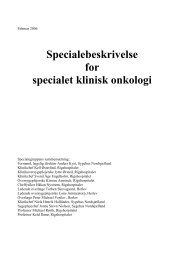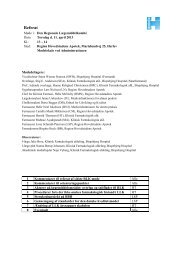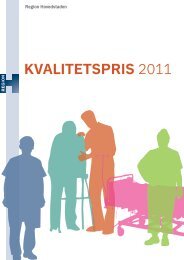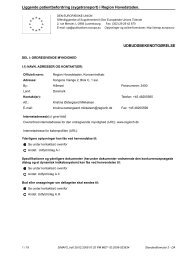Territorial Review Copenhagen - Region Hovedstaden
Territorial Review Copenhagen - Region Hovedstaden
Territorial Review Copenhagen - Region Hovedstaden
Create successful ePaper yourself
Turn your PDF publications into a flip-book with our unique Google optimized e-Paper software.
170<br />
increased by approximately 40% from 1993-2002. Government regulation<br />
curtails cross-trading, which has left in place a rigid structure in such<br />
professions as carpentry and plumbing. For example, currently legislation<br />
prohibits a carpenter who installs cabinets to install a kitchen sink at the<br />
same time, though this is permitted for a homeowner (Finansministeriet et<br />
al., 2004b, cited in OECD, 2005). Lack of competition in the market for<br />
building materials may also raise the costs of housing. Danish construction<br />
companies are often challenged to provide foreign building materials, given<br />
different building material standards across EU countries. The central<br />
national government, however, has made progress on this front: a ministerial<br />
working group recommended a simplification of approval procedures and an<br />
abolition of the requirement to obtain a special Danish approval of certain<br />
building materials. 20 Increasing productivity of this sector and decreasing<br />
home prices on the national level greatly affect the <strong>Copenhagen</strong><br />
metropolitan region‘s housing affordability. <strong>Copenhagen</strong> could prioritise<br />
approval of moderately priced rental units by implementing fast-track<br />
development reviews of these proposals.<br />
Given the low cost of manufactured housing, municipalities in the<br />
<strong>Copenhagen</strong> metropolitan region might consider encouraging its use on a<br />
larger scale. Already the Fund for Cheap Housing (Fonden for Billige<br />
Boliger) has reduced construction costs by using modular, prefabricated<br />
units manufactured in Estonia, Norway, Sweden and Denmark. The most<br />
inexpensive units were built for 30% to 40% less than it would cost in<br />
Denmark (Scanlon and Vestergaard, 2007). To give developers the<br />
possibility of using manufactured housing more frequently, municipalities in<br />
the <strong>Copenhagen</strong> metropolitan region may want to ensure that their zoning<br />
regulations or building codes do not place high-quality manufactured<br />
housing at a disadvantage. Manufactured housing holds a substantial pricing<br />
advantage over traditional housing and may provide greater access for lowand<br />
middle-income residents. This could be particularly attractive for<br />
smaller ―accessory dwelling units‖ commonly known as in-law units,<br />
carriage houses or secondary apartments.<br />
Municipalities in the <strong>Copenhagen</strong> metropolitan region could catalyse<br />
moderate cost developments through deepening partnerships with the private<br />
development community. Though municipalities do not have the power to<br />
impose inclusionary housing requirements for developers, 21 the Danish<br />
Planning Act and its complementary revisions in 2007 would allow<br />
municipalities to encourage moderate cost developments through density<br />
bonuses or rezoning to a higher density. These public-private partnerships<br />
have the potential to lower the cost of doing business to allow for new<br />
construction and to be economically viable. Several countries facilitate<br />
increased production of moderately priced housing through explicitly


